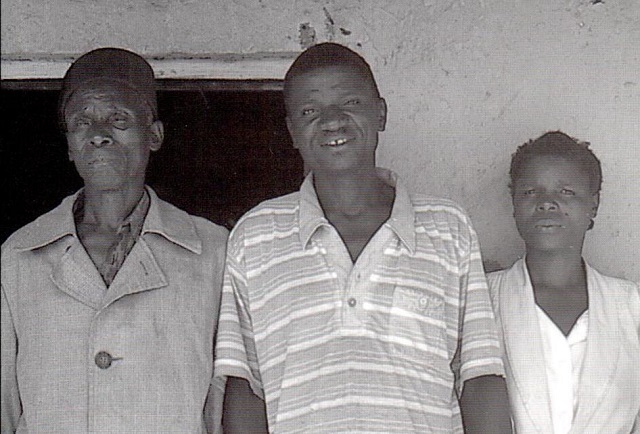A young Fipa man was punished by the women of his village for the crime of verbally, and publicly, abusing his mother. The crimes he committed violated Fipa traditions, so the women disciplined him with harsh, traditional punishments of their own. The story was reported widely in the middle of last week in such African media as Jeune Afrique, AfrikMag, and many other news sites and blogs.

On Friday morning, April 22, a 26-year old man named Vitus Nyami pushed the women of Kisungamile, located in the Kalambo District of Tanzania’s Rukwa Region, beyond the limits of their patience. Mr. Nyami had repeatedly, and quite publicly, been insulting and shaming his own mother, behavior that the Fipa women in the village could no longer tolerate. So they decided to punish him for his actions.
They tied him up and pushed him into a pit filled with cow dung. Then they forced him to eat a small amount of the manure. After that, they whipped him 15 strokes and forced him to parade around the community for the rest of the morning, stripped of all his clothing except for a bit of cloth to cover his genitals. A few of the news stories indicated that some of the village men assisted. As they forced him to parade about, the women sang songs that mocked him. And finally, they required him to pay a traditional fine of a goat, a liter of cooking oil, and a bag of cornmeal, which they subsequently divided.
Some critics condemned the traditional punishments but the chief of the village, Dida Musa, didn’t mind being quoted in the media expressing his approval for the justice meted out by the women. A resident of the village, Obed Mwanakatwe, also was willing to be quoted in at least one news report as saying that Mr. Nyami had been abusing his mother regularly.

The news report in AfrikMag and several others emphasized that a large part of the outrage in the village was due to the fact that, according to Fipa customary law, a mother deserves respect. The young man was clearly violating that local belief so he needed to be punished. The scholarly literature about the Fipa provides more information about their beliefs in punishment—and about the importance of respect for women in their society.
Willis (1981) made it clear that the Fipa did not shy away from punishing crimes as they saw them. He wrote that the primary basis for their law was that “every wrong should be righted by payment of compensation (p.176).” But he went on to qualify that generalization by citing several examples of how punishments varied depending on the crimes committed. For instance, when a man could identify a thief who had stolen from him, he had the right to go to the culprit’s hut and take some of his things in return.
The concept of respect, especially for women, is closely related to the famed peacefulness of the society. Smythe, in her book Fipa Families (2006), explained how the Fipa developed inter-generational responsibility and respect by encouraging the young people of both sexes to move out of their parents’ or grandparents’ houses—wherever they were being raised—and into adjacent buildings in the family compounds called intuli. Youngsters, especially teenagers, of both sexes slept in those dormitory-like buildings until they were ready to pair off and form their own marital unions.

Both the adults and the young people felt that this strategy helped develop a strong sense of responsibility on the part of the young person to make good decisions. They believed that the practice of living in the intuli fostered more freedom and respect for older generations than would be likely if the young people continued living in their homes.
The news accounts last week emphasized the gender relationships in the Fipa village. The women were the ones who demanded that the young man be brought to justice for his crimes, and they were the ones who carried out the punishment. Furthermore, they clearly had the support of the village chief in handling the discipline. Smythe (2006) and Willis (1980) both provided background on male/female relationships in Fipa society that provide a context to what happened.
Smythe wrote that although traditionally boys handled farm chores such as caring for livestock and collecting wood, and the work of girls normally included such things as caring for younger children, cooking, and carrying water, those roles were not rigid. Boys would sometimes help girls with their work if needed and at times girls would help the boys with the livestock.
Willis (1980) extended that gender relationship analysis even farther. He maintained that women in the pre-colonial period of their society had separate but nearly equal roles to play in the Fipa states. The men controlled the agricultural economy and the executive aspects of the states, but the women controlled the judiciaries. Their magistrates, usually older women, would handle such problems as sex crimes in the villages. They would place heavy fines on offenders, whether male or female. The women magistrates were able to keep one-third of any fine money.
The upshot of the Fipa gender relationships, according to Willis (1989a), was that they had a nearly gender-equal society. His argument helps explain the news reports last week. The response by the Fipa women of Kisungamile to the crime of publicly harassing one’s own mother, and the support provided by the village chief, were simply expressions of cherished Fipa traditions.